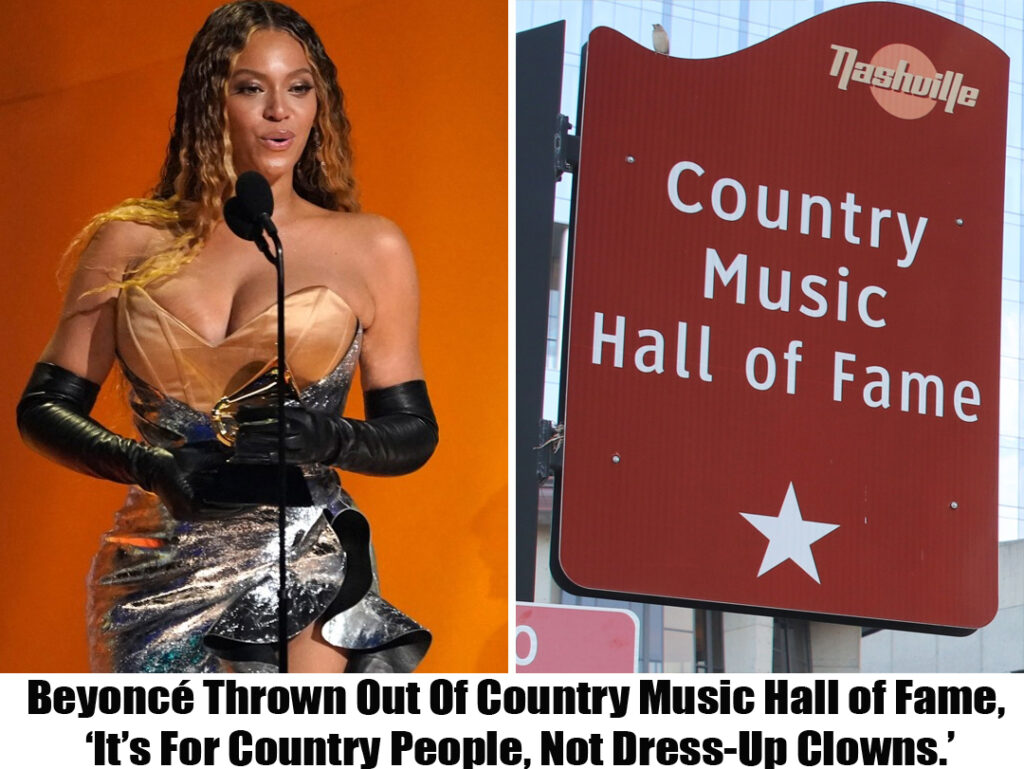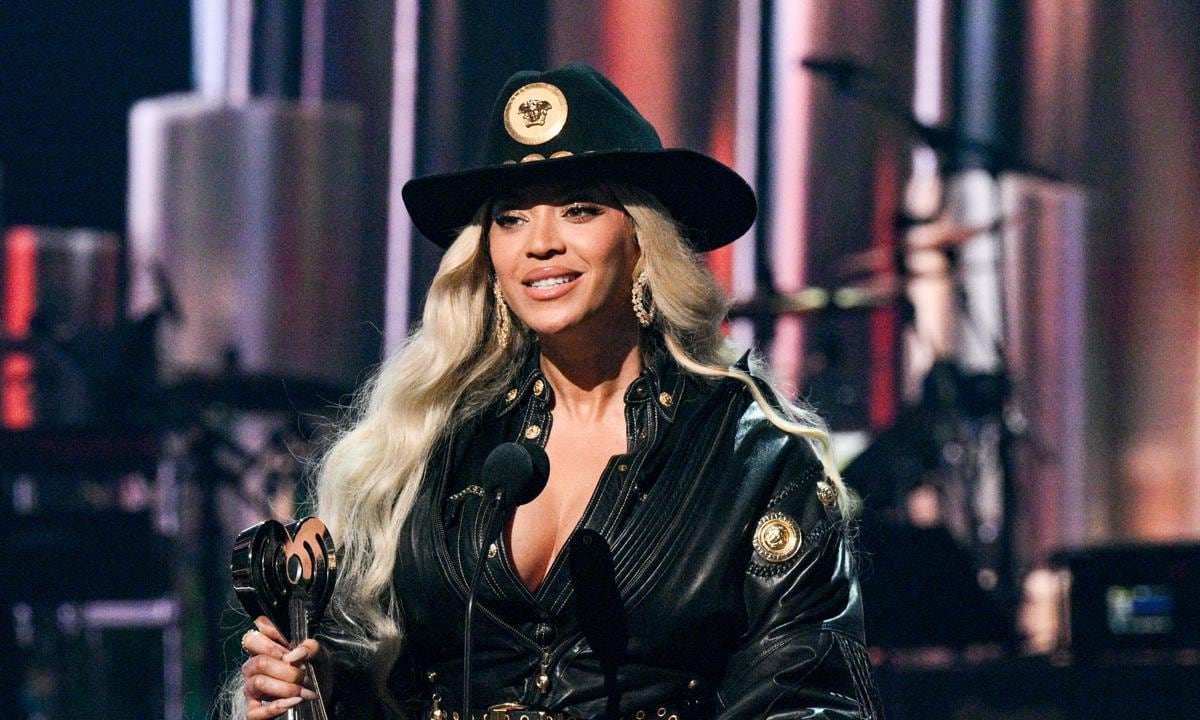
Beyoncé Thrown Out Of Country Music Hall of Fame, ‘It’s For Country People, Not Dress-Up Clowns.’

The decision made by the Country Music Hall of Fame to issue a lifetime ban against Beyoncé has reverberated across the music industry, sparking a profound and wide-ranging debate concerning the very essence and inclusivity of the genre. The unfolding of this incident during the prestigious induction ceremony, where Beyoncé was slated to receive an honorary award for her significant contributions to the music industry, took on a dramatic and contentious tone as she graced the stage adorned in attire reminiscent of country music iconography.
The reaction from certain quarters of the country music community was swift and intense, with some purists expressing dismay and even outrage at what they perceived as a departure from the traditional ethos of the genre. Adorned in cowboy boots and a rhinestone-studded hat, Beyoncé’s ensemble became a lightning rod for criticism, with detractors accusing her of disrespecting the hallowed traditions of country music.
In response to the growing backlash, the board of directors of the Country Music Hall of Fame convened an emergency meeting, ultimately deciding to revoke Beyoncé’s induction and impose a ban on her future participation in events associated with the institution. Members of the board defended their decision by emphasizing their commitment to upholding the authenticity of country music and preserving its cultural heritage against what they viewed as potential encroachments of gimmickry and superficiality.

The fallout from this controversial decision has ignited a fierce and impassioned debate within the music community. Supporters of Beyoncé argue vehemently in favor of recognizing her artistic versatility and contributions to music, advocating for a more inclusive and expansive understanding of the genre that embraces diversity and innovation. They contend that country music, like all art forms, should evolve and adapt to reflect the changing cultural landscape.
Conversely, critics of the ban accuse the Country Music Hall of Fame of betraying its own values and succumbing to narrow-mindedness and exclusion. They point to the rich history of country music, which has often been enriched by the influence of diverse voices and styles, and argue that Beyoncé’s expulsion sets a troubling precedent that stifles creativity and stifles progress.
Despite the contentious nature of the decision, Beyoncé herself has remained characteristically unfazed by the controversy, according to sources close to the singer. They describe her as a fearless trailblazer who is unafraid to challenge norms and push boundaries in her pursuit of artistic expression.
As the dust settles on this divisive chapter, the country music community finds itself at a crossroads, grappling with fundamental questions about identity, authenticity, and inclusivity. Will Beyoncé’s expulsion serve as a catalyst for introspection and reform within the genre, prompting a reevaluation of its boundaries and attitudes towards diversity? Or will it be viewed as a regrettable misstep, overshadowed by the enduring spirit of inclusivity and innovation that has defined country music at its best? Only time will tell.





